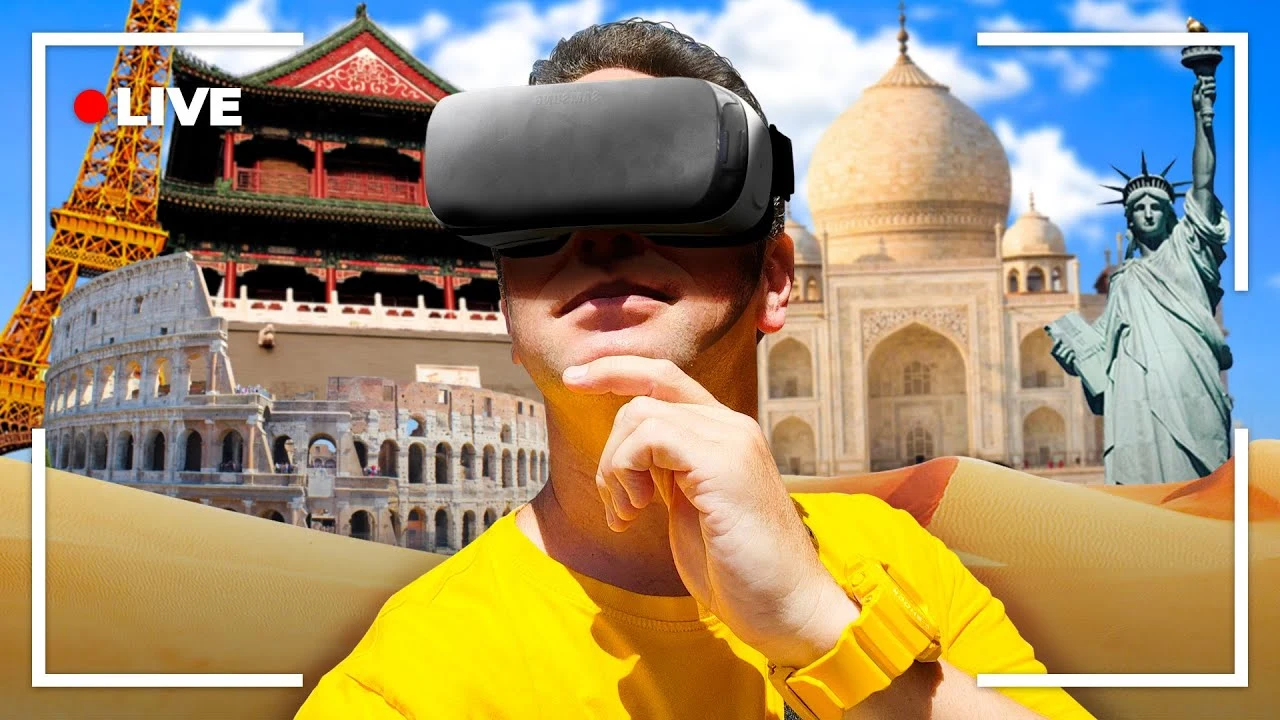
Metaverse Market in Travel and Tourism Industry to Record 25.34% Y-O-Y Growth Rate
The metaverse market size in the travel and tourism industry is expected to be valued at USD 188.24 billion in 2026 with a progressing CAGR of 26.01%.
The idea of the metaverse has existed since the 1990s and has become a more well-known concept in more recent times, as technology has advanced. This has opened up metaverse tourism opportunities, which businesses in the sector are keen to capitalize on.
The concept of the metaverse refers to the creation of virtual worlds, which are centered around social connections. This can take many forms, from virtual reality experiences, where users are placed in a digitally transformed environment, to augmented reality overlays of the real world, or even through video games.
Often, the concept of the metaverse is also associated with users having control over a digital avatar, which is then used to communicate with others who are active in the metaverse. Aside from its social component, businesses are also exploring the various opportunities the metaverse provides for them to reach customers wherever they are.
Key Metaverse Market Driver in Travel and Tourism Industry
The key factor driving growth in the metaverse market in the traveI and tourism industry is the increasing demand for AR and VR technology.
Customers are increasingly adopting VR and AR technology, either for professional or private use. Metaverse is a mixed reality (mixture of AR/VR) that has unlimited access, unlike usual VR programs.
Technological innovations will further drive the demand for AR and VR applications during the forecast period, as these applications will enable users to use the technology in a more user-friendly manner.
Wearable technology platforms will likely enhance the utility of AR in the global metaverse market in the traveI and tourism industry. For instance, Google is actively working on AR Smart Glasses for the global metaverse market in the travel and tourism industry. Therefore, the growing application area of AR and VR technology will boost the growth of the global metaverse market in the travel and tourism industry.
Key Metaverse Market Trends in Travel and Tourism Industry
Privacy and security concerns over the metaverse will be a major challenge for the metaverse market in the travel and tourism industry during the forecast period.
Even though companies and organizations keep revolutionizing their IT security systems, data privacy and security has been a long-running concern for users of the metaverse. The metaverse collects and processes vast amounts of information about users and their environment. Therefore, privacy concerns are a significant challenge in the global metaverse market in the traveI and tourism industry.
User privacy can also be threatened if hackers gain access to the user’s device. Moreover, there are privacy-related concerns associated with smart gears used in the metaverse, such as smart glass, VR headsets, etc. These glasses automatically screen and process the user’s environment, violating the user’s privacy and those around them. The development of such products may hamper the growth of the market during the forecast period.
Key Metaverse Market Challenge in Travel and Tourism Industry
Privacy and security concerns over the metaverse will be a major challenge for the metaverse market in the travel and tourism industry during the forecast period. Even though companies and organizations keep revolutionizing their IT security systems, data privacy and security has been a long-running concern for users of the metaverse. The metaverse collects and processes vast amounts of information about users and their environment. Therefore, privacy concerns are a significant challenge in the global metaverse market in the travel and tourism industry. User privacy can also be threatened if hackers gain access to the user’s device. Moreover, there are privacy-related concerns associated with smart gears used in the metaverse, such as smart glass, VR headsets, etc. These glasses automatically screen and process the user’s environment, violating the user’s privacy and those around them. The development of such products may hamper the growth of the market during the forecast period.
The metaverse market in the travel and tourism industry is fragmented and the vendors are deploying growth strategies such as focusing on acquiring smaller brands to increase their market presence to compete in the market.
Who are the Major Metaverse Market Vendors in Travel and Tourism Industry?
- Accenture Plc
- ALTERATION INDORUSSIA.COM
- Ariva Digital
- Infosys Ltd.
- LynKey International Ltd.
- Marriott International Inc.
- Mytaverse Inc.
- Powerbridge Technologies Co. Ltd.
- Qatar Airways Group
- Queppelin
- Wilkins Avenue AR
The global metaverse market in the travel and tourism industry is subject to rapidly changing consumer demands and preferences. The changing consumer buying pattern may affect vendor performance in the market. It may also be affected by consumer preference, global and regional economic conditions, and various other demographic trends. Changing economic conditions are affecting end-user living standards, which can also affect vendors’ businesses
37% of the market’s growth will originate from North America during the forecast period. US and Canada are the key markets for Metaverse in the travel and tourism industry in North America.
The metaverse market share growth in the travel and tourism industry by the AR segment will be significant for revenue generation.










